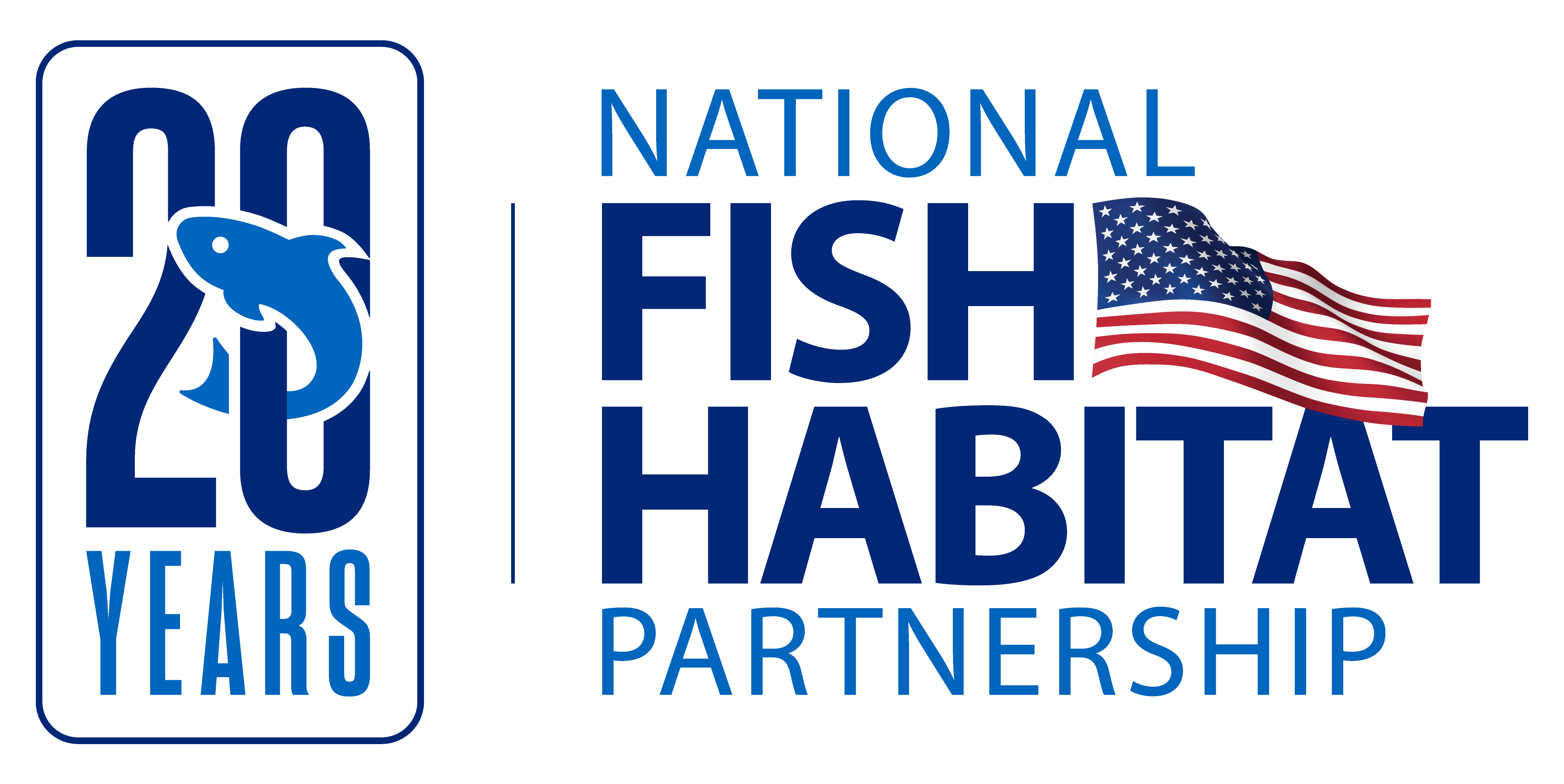
4/21/2022 2:07 AM
Washington, DC – The National Fish Habitat Partnership (NFHP), through the support of the Association of Fish & Wildlife Agencies (AFWA), applauds the Department of the Interior announcement last week that 40 fish passage projects in 23 states and Puerto Rico will receive $38 Million in funding through the Bipartisan Infrastructure Law.
With a total of $200 million in investments in the National Fish Passage Program, through the U.S. Fish and Wildlife Service (Service), over the next five years, the Bipartisan Infrastructure Law will bolster efforts to address outdated, unsafe, or obsolete dams, culverts, levees, and other barriers fragmenting our nation’s rivers and streams, which will help restore fish passages and aquatic connectivity.
The National Fish Passage Program, facilitated by the U.S. Fish and Wildlife Service, supports aquatic ecosystem restoration projects and restores free-flowing waters, allowing for enhanced fish migration and protecting communities from flooding.
Several of the projects receiving funding will directly address issues related to climate change and serve disadvantaged communities while also spanning the nation geographically and addressing a wide array of diverse aquatic resource issues. “The Association supports the Department of Interior announcement of their $38 Million investment to protect aquatic species and habitats through the Biden’s Administration’s Bipartisan Infrastructure Law,” said Tony Wasley, Director of the Nevada Department of Wildlife and President of the Association of Fish and Wildlife Agencies.
“This will go a long way to help restore and enhance the nation’s fish and aquatic communities.” “We appreciate the importance placed on aquatic conservation through the Bipartisan Infrastructure Law,” said Ed Schriever, Chairman of the National Fish Habitat Partnership. Fish Passage and aquatic connectivity is essential for the sustainability of our natural resources and is critical to the mission of the National Fish Habitat Partnership.”
Two of the nationally recognized Fish Habitat Partnerships under NFHP have been directly involved in projects supported through this funding. The Western Native Trout Initiative (WNTI) has partnered with numerous public and private entities in the Bear River watershed since 2007 to implement projects benefiting Bonneville Cutthroat Trout, other native fish, and aquatic organisms, recreationists, ranchers, other water users, and local economies. In the Bear River Watershed, WNTI works with the interagency Bonneville Cutthroat Trout Team, state and federal agencies, and nonprofits to remove and replace aging infrastructure in order to protect Bonneville Cutthroat Trout strongholds, restore habitat connectivity, provide fish passage, and enhance resilience to climate change by opening access to high-quality upstream habitats and cold, clean water on public and private lands. This multi-year effort consists of 19 projects to date in Idaho, Utah, and Wyoming that will remove a total of 24 push up dams and diversion structures, perched culverts, and a concrete dam to restore +/-144.25 stream miles. Projects address extreme bank erosion and land loss while improving habitat for an important fishery, upgrading aging and dilapidated irrigation infrastructure for private landowners, improving water supply reliability, and reducing operations and maintenance costs for ranchers and other water users.
Please see the October 2021 Op-ed on the Bear River Watershed in the Salt Lake Tribune: https://www.sltrib.com/opinion/commentary/2021/10/07/shara-sparks-therese/
In addition, the Desert Fish Habitat Partnership contributed funds to the Bylas Springs Habitat Expansion and Barrier Removal project in Arizona in 2018 and will be contributing more funding in 2022.
Enhancing wildlife corridors and habitat connectivity, including fish passage, is an early focus of the Biden-Harris administration’s America the Beautiful initiative. This announcement comes on the heels of last week’s launch of a separate $1 billion America the Beautiful Challenge that will leverage federal conservation and restoration investments with private and philanthropic contributions to accelerate locally-led land, water, and wildlife conservation efforts across the country.
About the National Fish Habitat Partnership:
Since 2006, the National Fish Habitat Partnership has supported 1,115 projects benefiting fish habitat in all 50 states. The National Fish Habitat Partnership works to conserve fish habitat nationwide, leveraging federal, state, tribal, and private funding resources to achieve the greatest impact on fish populations through priority conservation projects of 20 regionally-based Fish Habitat Partnerships. For more information, visit:
https://fishhabitat.org/
https://www.facebook.com/NFHAP
https://twitter.com/FishHabitat
